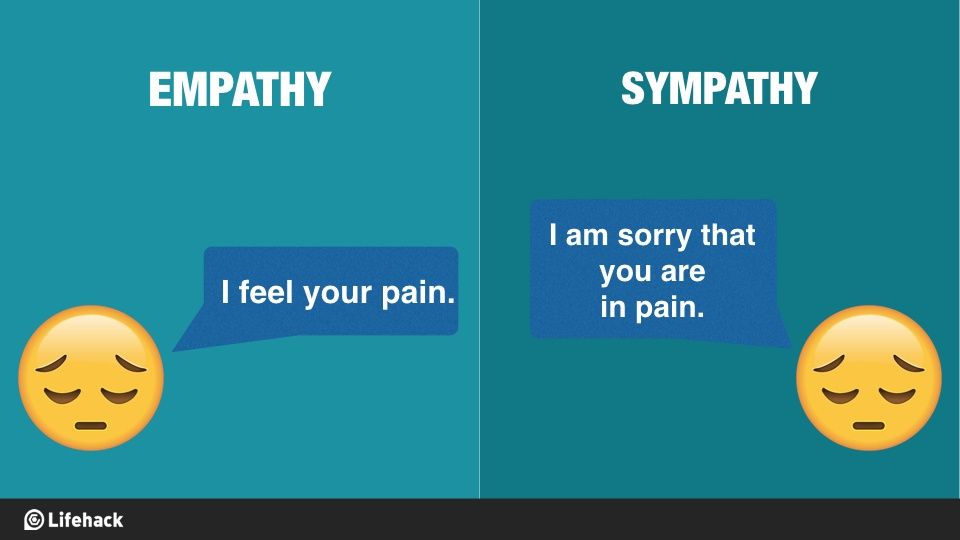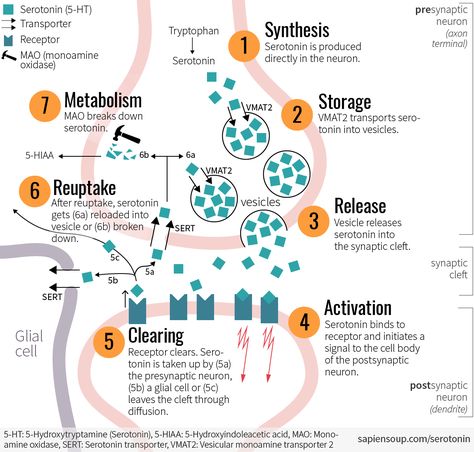Clear your mind meditation
How to Meditate & Clear Your Mind
Meditation has been around for thousands of years and has proven psychological, physiological and spiritual benefits. It’s a difficult task to master, but if you can somehow introduce a regular meditative practice into your daily life, you will soon begin to notice positive changes.
Who’s not up for some positive change once in a while?
Historically, meditation was practised by saints and sages to bring about the joyful state of self-realisation; a state of consciousness where a person is free from worries and anxieties and is completely present in the moment. Meditation can lead you to become more mindful and clear-headed, gaining a greater understanding of life and purpose.
If your mood (anxious, stressed, tired) tends to be the trigger for drinking, try swapping the habit of pouring a drink with sitting down and meditating for just five minutes. Meditation resets your mind so you can move through the triggers, feelings and thoughts and get onto a more productive and healthy action like cooking dinner or getting organised for the next day.
We explore some of these techniques in our app, Daybreak, for iOS and Android.
Try this simple practice of controlled breathing from our in-house clinical psychologists to help set you up for your meditation. Read through steps 1-5 and then give it a try.
- Get comfortable
Sit in a comfortable position, as comfortable as you can get. Sit up straight and relax your shoulders and muscles. - Deep breath in
Take a deep breath in through your nose. Count “one, two”. - Slow breath out
Breathe out through your mouth, pucker your lips (as though you are about to whistle) and breathe out for twice as long as you breathe in. Count “one, two, three, four”. Don’t hold your breath between breathing in and out, aim to keep your breath flowing smoothly. - Deep breathing
Check you are using your diaphragm by placing your hand on your stomach. If you are using your diaphragm you should feel your stomach move out as you breathe in and move in as you breathe out. This helps to ensure you aren’t taking shallow breaths. Remember to keep your breaths deep, not shallow or big.
This helps to ensure you aren’t taking shallow breaths. Remember to keep your breaths deep, not shallow or big. - Eyes Closed
Now close your eye and continue breathing this way until you feel relaxed.
What are the benefits of meditating?Stress: When stress overwhelms you, it can have serious health implications including anxiety, depression and even cardiovascular disease. Meditation activates the body’s natural relaxation response and not only calms the mind, allowing you to relax and the stress to gently leave the mind and body, it also it provides a deeper knowledge and understanding of the workings of the mind and emotions.
Anxiety: The purpose of meditation isn’t to get rid of your anxiety, but to help you become more present in the moment. We often experience anxiety because we fixate on the past or on the future. However, meditation quiets an overactive brain so you’re intentionally focused on the here and now.
Sleep: A meta-analysis of randomised controlled trials for insomnia found that eight weeks of in-person meditation training significantly improved total waking time and sleep quality in patients with insomnia.
Relationships: Mindfulness enhances couples’ levels of relationship satisfaction, autonomy, closeness and acceptance of each other while reducing relationship distress.
Cognition: Meditating for just four days is enough to improve memory, executive functions and their ability to process visual information. Meditation leads to activation in brain regions involved in self-regulation, problem-solving, adaptive behaviour and introspection. A 2013 review of three studies suggests that meditation may slow, stall, or even reverse changes that take place in the brain due to normal ageing.
Research also suggests that practising meditation may reduce blood pressure and symptoms of irritable bowel syndrome.
So where do I begin?Try the tips below to start on your journey to a clearer mind. You can even try a movement meditation if that suits you, rather than sitting still. Sometimes this is just walking slowly and focusing on your footsteps, the sounds and your surrounds. Or a gentle, slow yoga practice moving with the breath.
You can even try a movement meditation if that suits you, rather than sitting still. Sometimes this is just walking slowly and focusing on your footsteps, the sounds and your surrounds. Or a gentle, slow yoga practice moving with the breath.
- Youtube videos like this Six Phase Meditation
- Apps like Smiling Mind – a completely free set of guided meditations developed by a fellow Australian charity.
- Meditation group meet-ups.
- Meditation schools and classes in your area. Many yoga schools also offer group meditation.
If you find you need extra support to help you change, check out Hello Sunday Mornings’ mobile behaviour change program, Daybreak.
Get out of Your Head
Stoics like Marcus Aurelius, Seneca, and others understood and extolled the power of an organized, clear mind — totally controlling its thoughts and paying attention to exactly what matters.
The things you think about determine the quality of your mind. ― Marcus Aurelius
Most of us would like to be able to harness our minds in this way. And sometimes, we can. What seems to be a simple act of staying present, in reality, is a challenge for many.
So, what do you do when you just can’t seem to gain that often-elusive control over what you are thinking?
Where Do Centeredness and Clarity Originate From?
We’ll be diving into two things in this blog post: advice and tips on clearing your mind whenever you need to. Whether in a meditation session at home, in a critical meeting at work, or stuck in traffic, we’ll be diving into a multifunctional approach to mental clarity and presence.
Why is it so critical to be able to clear your mind?
A clear mind is a powerful mind. With clearer, more focused, and centered thinking, there’s no end to the health and wellness benefits you can gain by working on the famous presence. Here are just a few of the benefits you can look forward to:
Here are just a few of the benefits you can look forward to:
-
Boosted creativity and flow
-
Improved mindfulness
-
An easy-going attitude that will attract others
-
More energy
-
Clarity during times of stress
-
Better learning
-
An improved memory
-
Better control over negative thoughts and feelings
-
An easier time dealing with difficult situations and emotions
-
More presence during important moments
-
A more enjoyable and rewarding life overall
Feeling Foggy? What Is Brain Fog?
Brain fog refers to that “foggy” feeling in your head that often comes from not getting enough sleep or lacking energy.
If you have brain fog, you may feel like you can’t focus or think clearly. It may be difficult to concentrate on one single task or topic. Or, you may feel sleepy and generally run-down. In these cases, as long as you have no other symptoms, you can try the following tips for regaining mental clarity and harnessing a clearer mind.
In these cases, as long as you have no other symptoms, you can try the following tips for regaining mental clarity and harnessing a clearer mind.
Note: Occasionally, the symptom of brain fog may be associated with a more serious medical condition. Always speak with your doctor if you are concerned about brain fog or any other signs or symptoms that trouble you.
Quick Tips for Combating Brain Fog
If you’ve been experiencing brain fog or feelings of having a scattered mind, try these quick tips for instant refocus.
1. Eat a healthy snack.
If you haven’t eaten in a few hours, low blood sugar may be causing that brain fog you’re experiencing. Try eating something healthy such as peanut butter and an apple or a few carrot sticks and some hummus.
2. Take a power nap.
Often, brain fog can be the result of not getting enough sleep. Taking a short 20-minute power nap can be enough to recharge your energy, reduce stress and regain some clarity to get on with the day.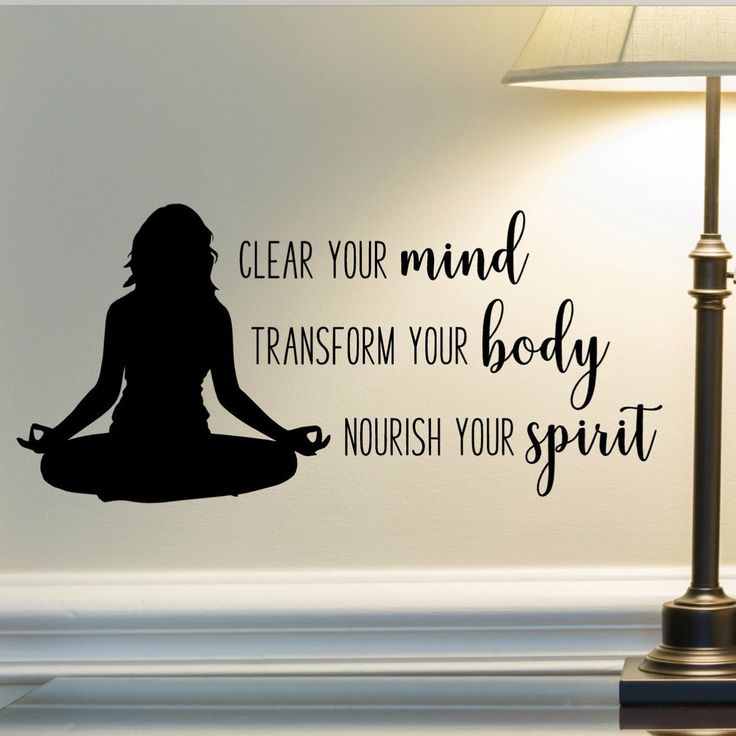
3. Go outside.
Sometimes, when we’re inside for long periods, our brains need a dose of fresh air to perk up. Go for a quick walk, or stand outdoors for a few minutes and take a few deep breaths of air. Our brains get energy from sunlight and access to fresh air so being outdoors as much as your situation allows is crucial for mental clarity. If you have access to nature, even better.
4. Drink some water.
Dehydration is one of the top reasons we feel foggy and unfocused during the day. Most experts suggest 3.7 liters of fluids daily for men and about 2.7 liters of fluids for women to maintain optimal hydration levels. Carry a refillable water bottle or download an app that tracks how much water you drink throughout the day if you need extra accountability.
5. Introduce regular exercise: a long run, a HIIT session or a yoga class
When you participate in physical activity, your body naturally releases endorphins that trigger positive sensations in the body and mind. Together with the endorphin release, the blood flow increase will help to combat the feeling of fogginess and dizziness. Whether it’s a run, a dance class, or something calmer such as yoga or pilates, any movement will only result in health benefits.
Together with the endorphin release, the blood flow increase will help to combat the feeling of fogginess and dizziness. Whether it’s a run, a dance class, or something calmer such as yoga or pilates, any movement will only result in health benefits.
How to Clear The Mind
It might be time to employ a longer-term solution or several when it’s not just an occasional spell of brain fog. You’ve been feeling unfocused, lacking in mental energy, and scattered in your thinking.
The following comprises a list of handy techniques for clearing your mind and refocusing your attention and state of mind.
Meditation
One of the main goals of meditation is cultivating that calm mental state we’re all after.
Practicing meditation helps clear the mind because it works on eliminating distractions. When we meditate, we focus on the mind-body connection, usually with the help of breathing techniques and breath observations. Some meditations include mantra chanting or visualization. In a sense, we’re training our minds to focus on the present sounds and sensations, which leads us to develop a habit of continuous awareness once we finish the practice.
In a sense, we’re training our minds to focus on the present sounds and sensations, which leads us to develop a habit of continuous awareness once we finish the practice.
Throughout the day, most of us are constantly distracted. You have experienced it all: people coming in and out of our office to ask questions or say hi, social media notifications on your phone, text messages, phone calls, and emails.
Saying that we are unfocused is an understatement. Modern life is generating so fast-paced it naturally causes stress, anxiety, disconnect, and hyperactivity.
Mindfulness practice alone or guided meditation can be just what we need to re-center, stay in the present moment, and empty our minds to put things in order. There are different forms of meditation and meditation techniques available for absolute beginners and experienced practitioners, both guided and un-guided.
How to Clear Your Mind for Meditation
“Want to know how to clear your mind for meditation?” is one of the most commonly asked questions regarding meditation practice. But it’s also somewhat counterintuitive as meditation is supposed to be what clears your mind in the first place. It can work circularly because clarifying the mind needs to happen to a certain extent to have a profound meditation experience.
But it’s also somewhat counterintuitive as meditation is supposed to be what clears your mind in the first place. It can work circularly because clarifying the mind needs to happen to a certain extent to have a profound meditation experience.
The best way to clear your mind before meditation is to make sure you're practicing the proper meditation technique. First, you should be in a quiet place without distractions.
Aim for a comfortable position. Sit straight on a meditation cushion, a pillow, or a chair with your palms up and hands on your lap or sides. Gently close your eyes or keep them softly open, staring at the ground near the distance. Do this every time before you meditate for a clear mind. It’s the grounding practice that sets you for profound meditation practice.
Yoga
Yoga as a regular practice is amazing at centering and refocusing the mind. It enhances the mind-body connection by reinforcing the link between breath, movement, and cognitive thinking, improving your quality of life. As a form of physical exercise, yoga can help alleviate the effects of brain fog. Our bodies need to get enough physical movement every day. Sweating releases toxins. Heavy breathing revives a sluggish cardiovascular system. And exercise relaxes and strengthens the muscles and bones, reinvigorating you physically and mentally.
As a form of physical exercise, yoga can help alleviate the effects of brain fog. Our bodies need to get enough physical movement every day. Sweating releases toxins. Heavy breathing revives a sluggish cardiovascular system. And exercise relaxes and strengthens the muscles and bones, reinvigorating you physically and mentally.
Yoga is an excellent way to clarify the mind. New to yoga? Take up a yoga class in your local studio by starting with something gentle like restorative or Hatha yoga. If you don’t have a studio nearby, try to look for lessons online – from youtube to streaming platforms, there are endless options you can find that match your abilities and pocket.
Deep Breathing
Just a few moments of mindful breathing exercises can help clear your mind instantly. When it comes to centering and focusing your mind, breathing is a helpful tool due to the reinforcement of the mind-body connection.
Square or box breathing is one technique that quiets the fight or flight stress response or simply brings your senses back to calm when things get hectic throughout the day. Your practice doesn’t have to belong, and you can do it anywhere, anytime – at the office, on a train, while waiting in line to grab a coffee.
Your practice doesn’t have to belong, and you can do it anywhere, anytime – at the office, on a train, while waiting in line to grab a coffee.
Alongside meditation, breathwork practice is one of the most effective tools for stress management and anxiety relief. It also improves memory and helps you to solve problems with ease and less distraction.
How to Do Square Breathing
Learn the different steps in the square breathing, aka box breathing process. Below, we outlined the classic approach to square breathing practice.
1. Find a quiet place where you can be alone and undisturbed for at least five minutes.
2. Sit with your back straight in a chair or on the floor. You can also grab a cushion to sit on.
3. Put your hands at your sides or in your lap with your palms up, and gently close your eyes. Relax your muscles as well as you can.
4. Start by exhaling. You want to begin with all of the air out of your lungs.
5. Square breathing has four parts. The first part starts with an inhale. Inhale slowly while counting to four in your head. At the count of four, your lungs should be full of air.
The first part starts with an inhale. Inhale slowly while counting to four in your head. At the count of four, your lungs should be full of air.
6. Hold the air within your lungs for another count of four.
7. Now, exhale the air slowly, counting to four once more in your head. Once you reach the count of four, all of the air should be out of your lungs.
8. Lastly, hold the air out of your lungs for a final count of four.
9. Repeat this tutorial as many times as you like, but not too much as it can make you feel slightly lightheaded. As a general rule, practicing square breathing for three to five minutes can help you destress and improve your overall mindfulness.
Improving Your Diet
We are what we eat. Eating more nutritious food is an excellent way to improve your focus. Especially when we’re busy and distracted, it’s not uncommon to grab quick, easy, and sugar-packed foods consumed on the go.
Unfortunately, this results in consuming a range of non-nutritious foods rapidly. It’s much better to take the time to eat healthily and develop sustainable food habits that will feed both your body and mind.
It’s much better to take the time to eat healthily and develop sustainable food habits that will feed both your body and mind.
Here are a few foods that are excellent for the mind.
-
Green tea improves memory and thinking abilities. It is a great mood booster, releasing caffeine at a slower pace, which means you are less likely to hit energy highs and lows as it tends to happen with coffee.
-
Nuts are packed with omega-3 fatty acids that boost brain activity and cognitive function. Nuts are the perfect on-the-go snack for your brain.
-
Blueberries are rich in antioxidants, making them perfect for avoiding the neurodegenerative diseases that may be associated with long-term brain fog.
Many of us tend to eat quickly, negatively impacting how mindful we are daily. Conscientious chewing and mindful eating practices can bring back more awareness to how we eat food. Eating with more awareness also helps with overeating and portion control. Pay attention to how fast you eat and how quickly or slowly you get full; noticing the small things we usually take for granted is a potential solution to a clearer, more focused mind.
Pay attention to how fast you eat and how quickly or slowly you get full; noticing the small things we usually take for granted is a potential solution to a clearer, more focused mind.
Better Sleep
Improving your sleep can do wonders for your mental clarity. Lack of sleep causes brain fog and the inability to focus on intricate tasks throughout the day.
To improve your sleep, try investing more time in cultivating a regular nightly routine. For example, before bed:
-
Put a few drops of essential oils on your pillow for a calming scent when you lie down
-
Play some relaxing music
-
Turn off all screens
-
Dim the lights
-
Ensure a comfortable setting in your bedroom
-
Have fresh sheets and blankets on your bed
-
Read a book before you nod off
-
Wear comfortable pajamas
-
Try a guided meditation for sleep
How to Clear the Mind for Sleep
Another technique you can try is progressive muscle relaxation. Here is how to do it:
Here is how to do it:
1. Lay on your back in bed, prepared for sleep.
2. Starting at your toes, clench your toes and feet very tightly for a count of five. Release and wait for another count of five before moving on to your calves.
3. Clench and tighten the muscles in your calves for a count of five. Release and wait for another count of five.
4. Continue doing this up to the top of your body and your neck and head muscles.
Taking these steps will allow you to empty your mind and improve your sleep.
Clear Your Mind: Frequently Asked Questions
What are tips on how to clear your mind of negative thoughts?
Negative thoughts have a habit of creeping into the mind uninvited.
You might be lying in bed trying to sleep when you suddenly remember a bill you forgot to pay. Or, perhaps you’re on a date with your partner when it strikes you that they’re acting strangely — are they mad? Are they annoyed at you? Do they think about someone else?
Most of the time, the best way to stop these negative thoughts is to act as the “bouncer” of your mind and to say a hard-and-fast “no” to non-useful, negative thoughts. If it’s not a good thought or a constructive thought, don’t let it in.
If it’s not a good thought or a constructive thought, don’t let it in.
This is obviously easier said than done. With practice, you may see that this muscle gets stronger, and you can resist the lingering dwelling on negative thoughts you once had. Sometimes, clearing your mind comes with a bit of a fight.
How do you empty your mind?
In the end, “emptying your mind” may not be what you truly want to achieve. Perhaps a focused or clear mind is a better visual than an empty mind is. After all, an empty mind is entirely devoid of thought, thinking, and feeling. On the other hand, a focused or clear mind is one with intention, awareness, and sharpness. Try meditation, mindfulness, yoga, deep breathing, or physical exercise to cultivate a clear or focused mind.
How do I clear my mind and focus on one thing?
It can be challenging to clear your mind and focus on one thing when you have distractions. That’s why eliminating distractions is the number one way to focus on a given task at a given time. Turn off all screens and media, go to a quiet place, don’t bring a snack or drink, and have nothing else in front of you except the task you want to complete. Longer-term, you can cultivate the ability to focus better by using deep breathing, mindfulness, yoga, and meditation practices.
Turn off all screens and media, go to a quiet place, don’t bring a snack or drink, and have nothing else in front of you except the task you want to complete. Longer-term, you can cultivate the ability to focus better by using deep breathing, mindfulness, yoga, and meditation practices.
In addition to the above, a simple act of writing and to-do list generation is a great tool to bring more clarity into your mind. Journaling, listing, and goal setting, all layed out on a piece of paper, bring more order into your life. Next time you’re feeling overwhelmed or out of focus, write things down.
If emotions are overwhelming you or you feel a blockage in your mind, introduce yourself to expressive writing – a personal and emotional writing form where you let your thoughts fly in a way that they come to you.
How do I clear my mind and relax?
When you’re in a bind, and your mind is aflutter with thought, you can clear it and relax by taking several deep breaths. Breathe deeply from the lower abdomen, and go slowly. Count slowly in your mind to four as you inhale, and do the same as you exhale. Repeat at least three times.
Breathe deeply from the lower abdomen, and go slowly. Count slowly in your mind to four as you inhale, and do the same as you exhale. Repeat at least three times.
ANAHANA MINDFULNESS RESOURCES
MINDFULNESS WIKIS
Mindfulness
How To Relax Your Mind
MINDFULNESS BLOGS
Mindfulness in the Classroom
Mindfulness Activities for Kids
Forest Bathing
How To Clear Your Mind
Mindfulness For Kids
Mindfulness For Teens
Mindful Parenting
References
Being Outdoors May Change the Way Your Brain Works, Study Says
Water: How much should you drink every day? - Mayo Clinic
Regular exercise changes the brain to improve memory, thinking skills - Harvard Health
Effect of Green Tea Phytochemicals on Mood and Cognition
Neuroprotective effects of berry fruits on neurodegenerative diseases - PMC
how to help yourself empty your mind
Stoics such as Marcus Aurelius, Seneca, and others understood and praised the power of an organized, clear mind - completely in control of your thoughts and paying attention to exactly what is important.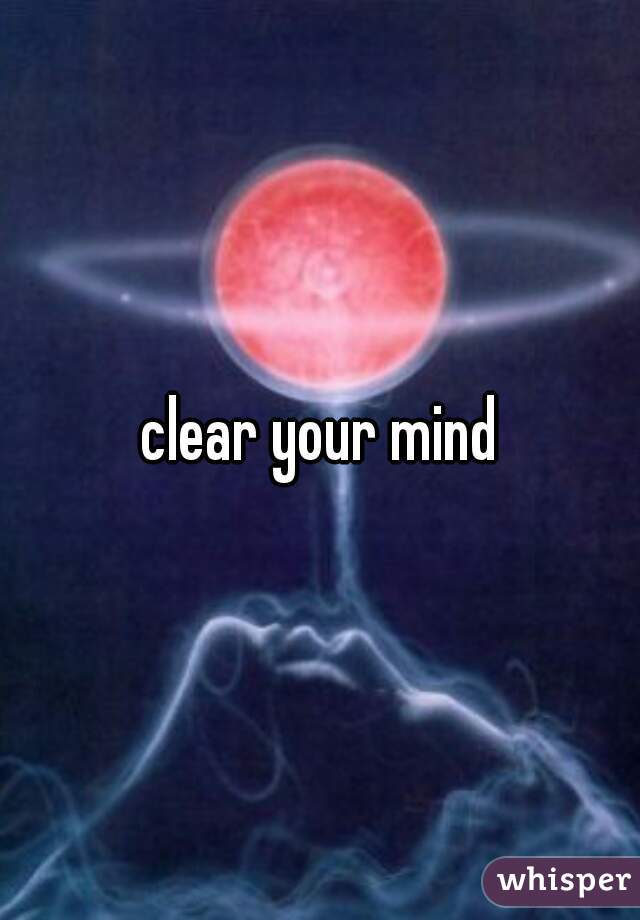
What you think about determines the quality of your mind.
- Marcus Aurelius
Most of us would like to be able to use our minds in this way. And sometimes we succeed. What seems like a simple act to stay in the present is actually a challenge for many.
So what do you do when you just can't get that often subtle control over your thoughts?
Where do centerliness and clarity come from?
In this blog post, we will cover two topics: tips and tricks to clear your mind whenever you need it. Whether meditating at home, in an important meeting at work, or in traffic, we'll look at a multifunctional approach to mental clarity and presence.
Why is it important to be able to clear your mind?
A clear mind is a powerful mind. With a clearer, more focused, and centered mindset, there is no end to the health and wellness benefits you can reap from working on a famous presence. Here are just some of the benefits you can count on:
Here are just some of the benefits you can count on:
-
Increasing creativity and flow
-
Improved awareness
-
A relaxed attitude that will attract others
-
More energy
-
Clarity in times of stress
-
Best Teaching
-
Improved memory
-
Better control of negative thoughts and feelings
-
Deal with difficult situations and emotions more easily
-
More presence at important moments
-
A more pleasant and useful life in general
Feeling foggy? What is brain fog?
Brain fog is a feeling of "fog" in the head, often due to lack of sleep or lack of energy.
If you have fog in your head, you may feel that you cannot concentrate or think clearly. You may find it difficult to focus on one task or topic. Or you may feel sleepy and generally tired. In these cases, if you do not have other symptoms, you can use the following tips to restore mental clarity and use a clear mind.
In these cases, if you do not have other symptoms, you can use the following tips to restore mental clarity and use a clear mind.
Note: Sometimes a symptom of brain fog can be associated with a more serious medical condition. Always talk to your doctor if you are concerned about the fog in your head or any other signs or symptoms that bother you.
Brain Fog Quick Tips
If you're feeling foggy or distracted, try these tips to instantly refocus.
1. Eat a healthy snack.
If you haven't eaten for hours, low blood sugar can be the cause of the brain fog you're experiencing. Try something healthy, like peanut butter and an apple, or a few carrot sticks and some hummus.
2. Take a nap.
Often, brain fog can be the result of lack of sleep. A short 20-minute nap can be enough to energize, relieve stress, and restore mental clarity to continue the day.
3. Go outside.
Sometimes when we're indoors for a long time, our brain needs fresh air to cheer up.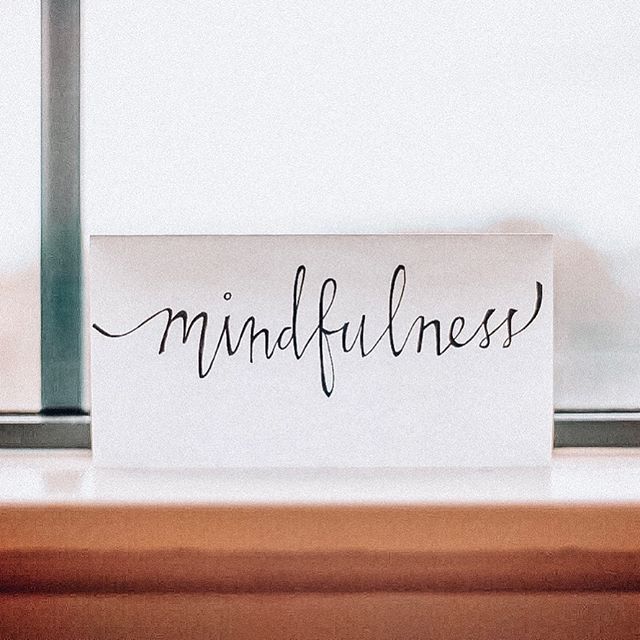 Take a walk or stand outside for a few minutes and take a few deep breaths. Our brains get their energy from sunlight and fresh air, so being outdoors as much as the situation allows is very important for mental clarity. If you have access to nature, even better.
Take a walk or stand outside for a few minutes and take a few deep breaths. Our brains get their energy from sunlight and fresh air, so being outdoors as much as the situation allows is very important for mental clarity. If you have access to nature, even better.
4. Drink some water.
Dehydration is one of the main reasons why we feel foggy and unfocused during the day. Most experts recommend drinking 3.7 liters of fluid per day for men and about 2.7 liters for women to stay hydrated. Carry a reusable water bottle with you or download an app that tracks how much water you drink throughout the day if you need extra responsibility.
5. Introduce regular exercise such as long runs, HIIT or yoga.
When you participate in physical activity, your body naturally releases endorphins, which cause positive sensations in the body and mind. Along with the release of endorphins, increased blood flow will help combat feelings of foggy and dizziness. Whether it's running, a dance class, or something more relaxed like yoga or Pilates, any movement will only bring health benefits.
Whether it's running, a dance class, or something more relaxed like yoga or Pilates, any movement will only bring health benefits.
How to Clear Your Mind
Perhaps it's time for a long-term solution or several, if it's not just an occasional bout of brain fog. You feel unfocused, lack mental energy and wander in thoughts.
Below is a list of handy techniques to clear your mind and refocus your attention and state of mind.
Meditation
One of the main goals of meditation is to achieve a calm mental state, which we all strive for.
The practice of meditation helps to clear the mind, as it aims to eliminate distractions. When we meditate, we focus on the mind-body connection, usually through breathing techniques and observation of the breath. Some meditations include mantra recitation or visualization. In a way, we are training our mind to focus on real sounds and sensations, which leads to the development of a habit of continuous awareness after the practice is over.
During the day, most of us are constantly distracted. You've experienced it all: people walking in and out of our office to ask questions or say hello, social media notifications on your phone, text messages, phone calls and emails.
To say that we are out of focus is an understatement. Modern life moves at such a fast pace that it naturally causes stress, anxiety, disconnection and hyperactivity.
Self-mindfulness practice or guided meditation may be just what we need to re-center, stay in the present moment, and clear our minds to put our thoughts in order. There are various forms of meditation and meditation techniques for absolute beginners and advanced practitioners, both guided and unguided.
How to clear your mind for meditation
"Do you want to know how to clear your mind for meditation?" is one of the most frequently asked questions regarding the practice of meditation. But this is also somewhat counterintuitive, as meditation is supposed to clear your mind first. This can work in reverse, as deep meditation experiences require a clearing of the mind to occur to a certain extent.
This can work in reverse, as deep meditation experiences require a clearing of the mind to occur to a certain extent.
The best way to clear your mind before meditation is to make sure you are practicing the right technique. First, you must be in a quiet place with no distractions.
Get into a comfortable position. Sit upright on a meditation cushion, pillow, or chair with your palms up and your hands on your knees or at your sides. Close your eyes slightly or keep them slightly open while looking at the ground in the distance. Do this every time before meditation for mental clarity. This is a grounding practice that sets you up for deep meditation practice.
Yoga
Yoga, as a regular practice, is great for centering and refocusing the mind. It enhances the connection between mind and body, strengthening the connection between breath, movement and cognitive thinking, improving the quality of your life. As a form of exercise, yoga can help alleviate the effects of brain fog. Our body needs daily physical movement. Sweat releases toxins. Heavy breathing revives a sluggish cardiovascular system. And physical exercise relaxes and strengthens muscles and bones, revitalizing you physically and mentally.
Our body needs daily physical movement. Sweat releases toxins. Heavy breathing revives a sluggish cardiovascular system. And physical exercise relaxes and strengthens muscles and bones, revitalizing you physically and mentally.
Yoga is a wonderful way to clear the mind. New to yoga? Sign up for a yoga class at a local studio, starting with something gentle, like restorative or hatha yoga. If you don't have a studio nearby, try looking online for lessons - from youtube to streaming platforms, there are an endless array of options to suit your ability and pocket.
Deep Breathing
Just a few moments of mindful breathing will help you instantly clear your mind. When it comes to focusing and focusing your mind, breathing is a useful tool by strengthening the mind-body connection.
Square breathing is one technique that can help calm the fight-or-flight stress response, or simply bring the senses back to a calm state when the day gets hectic. Your practice doesn't have to be owned by anyone, and you can do it anywhere, anytime - in the office, on the train, in line for coffee.
Along with meditation, the practice of breathing is one of the most effective tools for managing stress and relieving anxiety. It also improves memory and helps you solve problems with ease and less distraction.
How to do square breathing
Learn the different steps of the square breathing process, also known as box breathing. Below we have described the classical approach to the practice of square breathing.
1. Find a quiet place where you can be alone and undisturbed for at least five minutes.
2. Sit with a straight back on a chair or on the floor. You can also take a pillow to sit on.
3. Place your hands at your sides or on your knees, palms up, and gently close your eyes. Relax your muscles as much as you can.
4. Begin by exhaling. You must start by getting all the air out of your lungs.
5. Square breathing consists of four parts. The first part begins with an inhalation. Inhale slowly while mentally counting to four.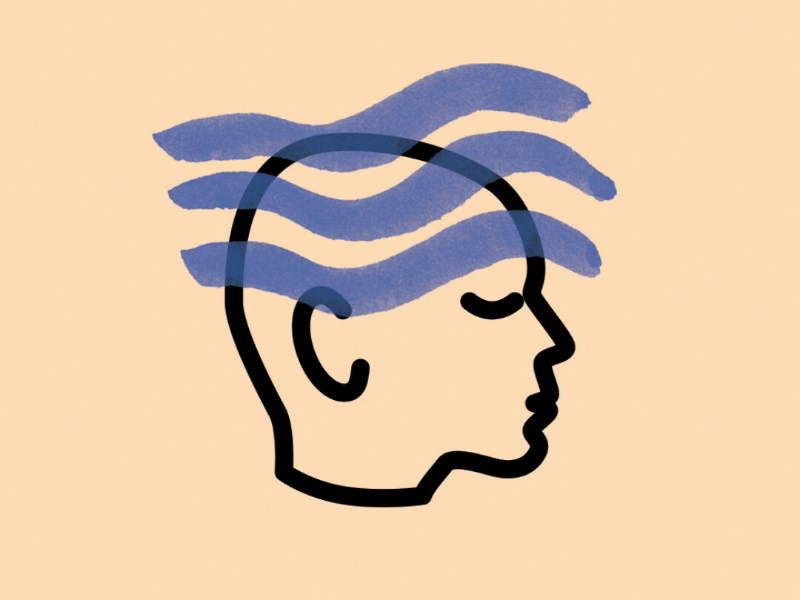 On the count of four, your lungs should be filled with air.
On the count of four, your lungs should be filled with air.
6. Hold the air in your lungs for four more counts.
7. Now slowly exhale the air, mentally counting to four. When you count to four, all the air should be out of your lungs.
8. Finally, hold the air in your lungs for the last count of four.
9. Repeat this exercise as many times as you like, but not too often, as this may cause slight dizziness. Generally, practicing square breathing for three to five minutes can help you relieve stress and improve your overall state of mind.
Diet improvement
We are what we eat. Eating more nutritious foods is a great way to improve your focus. Especially when we're busy and distracted, it's not uncommon for us to snack on quick, easy, sugar-rich foods on the go.
Unfortunately, this leads to the rapid consumption of a range of non-nutritious foods. It is much better to spend time eating healthy and developing sustainable eating habits that will nourish both body and mind.
Here are some foods that are great for the mind.
-
Green tea improves memory and mental abilities. It's a great mood booster by releasing caffeine at a slower rate, which means you're less likely to experience energy ups and downs like coffee usually does.
-
Nuts are rich in omega-3 fatty acids, which increase brain activity and improve cognitive function. Nuts are the perfect on-the-go snack for your brain.
-
Blueberries are rich in antioxidants, making them ideal for preventing neurodegenerative diseases that can be associated with prolonged brain fog.
Many of us tend to eat quickly, which negatively impacts how mindfully we eat every day. Practicing mindful chewing and mindful eating can bring more mindfulness back into the way we eat. Mindful eating can also help you manage overeating and control portions. Pay attention to how fast you eat and how quickly or slowly you feel full; noticing the little things we usually take for granted is a potential solution for a clearer and more focused mind.
Better sleep
Better sleep can do wonders for your mental clarity. Lack of sleep causes brain fog and an inability to focus on difficult tasks during the day.
To improve your sleep, try to spend more time developing a regular nightly routine. For example, before going to bed:
-
Apply a few drops of essential oils to your pillow for a soothing fragrance when you go to bed
-
Turn on relaxing music
-
Turn off all screens
-
Dim the lights
-
Make your bedroom comfortable
-
Lay fresh sheets and blankets
-
Read a book before falling asleep
-
Put on comfortable pajamas
-
Try Guided Sleep Meditation
How to clear your mind for sleep
Another technique you can try is progressive muscle relaxation. Here's how to do it:
1. Lie on your back in bed, ready for bed.
2. Beginning at the toes, firmly squeeze the toes and feet for a count of five. Release and wait five more times before moving on to the calves.
3. Squeeze and tighten your calf muscles for a count of five. Let go and wait five more times.
4. Continue doing this to the upper body and muscles of the neck and head.
Doing these things will free your mind and improve your sleep.
Clear Your Mind: Frequently Asked Questions
What are some tips for clearing your mind of negative thoughts?
Negative thoughts have a habit of creeping into the mind uninvited.
You may be in bed trying to sleep when you suddenly remember a bill you forgot to pay. Or perhaps you're on a date with your partner when you think he's acting weird - is he angry? Are they irritated with you? Are they thinking of someone else?
In most cases, the best way to stop these negative thoughts is to act as the "bouncer" in your mind and say a hard "no" to useless, negative thoughts. If it's not a good or constructive thought, don't let it in.
If it's not a good or constructive thought, don't let it in.
Obviously, this is easier said than done. With practice, you may notice that this muscle gets stronger and you can resist the lingering negative thoughts you once had. Sometimes the cleansing of the mind is accompanied by a struggle.
How to empty your mind?
In the end, "emptying the mind" may not be what you really want to achieve. Perhaps a focused or clear mind is a better representation than an empty mind. After all, an empty mind is completely devoid of thoughts, thinking and feeling. On the other hand, a focused or clear mind is a mind with intention, awareness and sharpness. To develop a clear or focused mind, try meditation, mindfulness, yoga, deep breathing, or exercise.
How can I clear my mind and focus on one thing?
When you are distracted by extraneous thoughts, it can be difficult to clear your mind and focus on one thing. That's why eliminating distractions is the number one way to focus on a task at a specific time. Turn off all screens and media, go to a quiet place, don't bring snacks or drinks with you, and have nothing in front of you but the task you want to accomplish. In the long run, you can improve your ability to concentrate using deep breathing, mindfulness practices, yoga, and meditation.
Turn off all screens and media, go to a quiet place, don't bring snacks or drinks with you, and have nothing in front of you but the task you want to accomplish. In the long run, you can improve your ability to concentrate using deep breathing, mindfulness practices, yoga, and meditation.
In addition to the above, the simple act of writing and making a to-do list is a great tool to bring more clarity to your mind. Keeping a journal, making a list, and setting goals on a piece of paper brings more order into your life. The next time you feel overwhelmed or unable to focus, write everything down on paper.
If you are overwhelmed by emotions or feel blocked in your mind, try expressive writing - a personal and emotional form of writing where you let your thoughts fly as they come to you.
How can I clear my mind and relax?
When you are in trouble and your mind is fluttering with thoughts, you can clear it and relax by taking a few deep breaths.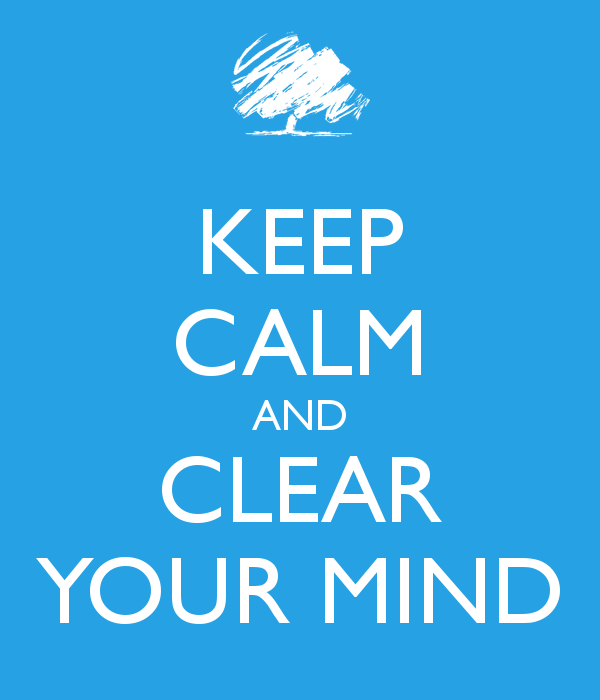 Breathe deeply into the lower abdomen and slowly. As you inhale, slowly mentally count to four, and do the same as you exhale. Repeat at least three times.
Breathe deeply into the lower abdomen and slowly. As you inhale, slowly mentally count to four, and do the same as you exhale. Repeat at least three times.
RESOURCES FOR AWARENESS IN ANAHAN0027
MindFulness
How to relax your mind
Blogs about attentiveness
Consciousness in class
Cuties for children
Forest bathing
How to clean your mind
9000 MINDFULNESS 9000 MINDFULNESS FOR KIDS 9000 MINDFULNES Smart parenting
Links
Outdoors can change brain function, study says
Some days are simply irritating. Crazy load, constant letters and calls. The speed sometimes seems hectic, and constant interruptions not only interfere with activity, but also have a bad effect on the train of thought. You move so fast that you end up feeling unproductive and meaningless in your actions. By the end of the day you are overcome by stress and irritability. Moreover, you cannot “turn off” your brain, because you are afraid to miss something important.
Such a state should not reach a critical point when, on going home, you swear at your children and yell at the dog. There are simple ways to regain composure on the most stressful and crazy days. Below is a simple, 15-minute recipe from my friend and coach Carolina Roark, Ph.D., who has taught college students for many years and knows a little about creating calm in a world of chaos.
The world spins you in different directions, so find a quiet place for a 15 minute exercise to help center you in the universe.
5 minutes of physical activity
Even if your heart rate is skyrocketing from running around the office right now, Roarke assures you that playing ball outdoors, running or brisk walking around the building will help you take a break from work chaos. Switching from work will help you get all the worries out of your head, and endorphins will cheer you up and begin to fight stress.
4 minutes of gratitude
Now that your body has relaxed a bit, you can start clearing your thoughts directly. The easiest way to slow down is to remember why you started it all. Use these moments to reflect on how grateful you are for the people around you who fill your life with meaning. Say "thank you" for good health, good opportunities and the wonders of the world in which you live. You can take a broad approach, making a whole list, or you can choose one person and write a note to him. Send it tomorrow or, if there are no other tasks, right now.
The easiest way to slow down is to remember why you started it all. Use these moments to reflect on how grateful you are for the people around you who fill your life with meaning. Say "thank you" for good health, good opportunities and the wonders of the world in which you live. You can take a broad approach, making a whole list, or you can choose one person and write a note to him. Send it tomorrow or, if there are no other tasks, right now.
3 minutes of meditation
Now that you are in a positive state of mind and body, you can work on clearing your mind. The most effective way to eliminate all distractions and focus is meditation. You can use other existing methods. Some people use prayer to help calm the outside and focus on the inside. Others cross their legs and chant "aum". If you're not sure which method to use, Roarke recommends looking up examples online or watching a tutorial video on YouTube. In any case, make sure that there are special programs that will help you achieve the same goal - to think less.
2 minutes of silence
So, your mind is clear, and the last thing you need now is to disengage from annoying factors. Find a quiet place where you have the opportunity to sit and normalize your mental state. Even while at your desk, turn off the lights, turn off your computer and electronics, remove all irritants. Be alone with yourself and concentrate on your calmness. You can put your smartphone on airplane mode so it doesn't disturb you and set a timer for 2 minutes. If the phone is on vibrate, it will gently notify you in your pocket when two minutes of silence has elapsed. Now, you must calm down, cool down and cleanse.
1 minute of deep breathing
At the end of the "silent" mode, note another minute on the watch. Naturally, you know that you need to go back to battle, so you need time to prepare for this. For the next 60 seconds, focus on slow breathing, as if forcing yourself to return to reality. You will find that only deep breathing will help slow things down.






